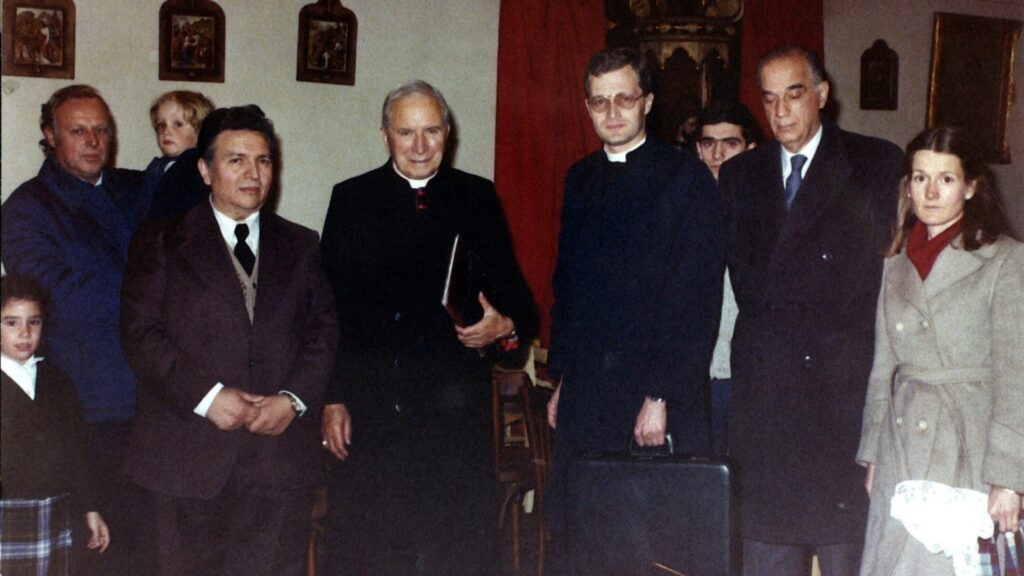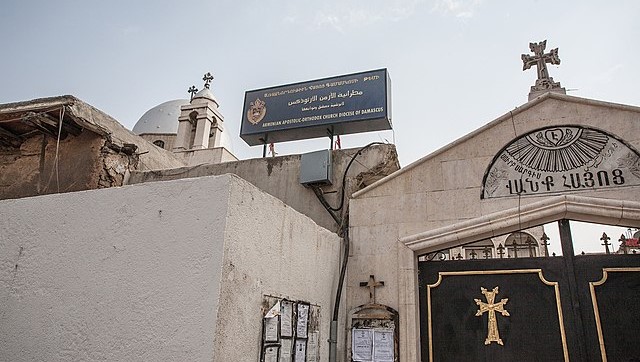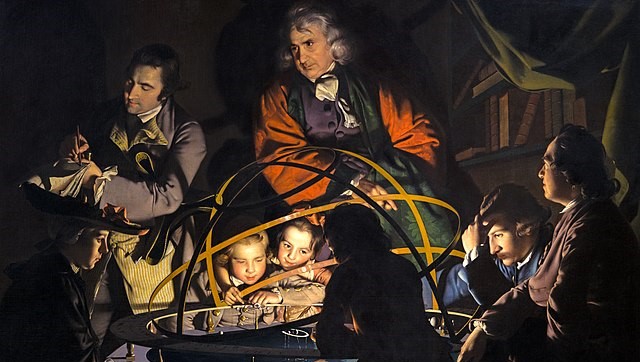In 2018, the Chaldean Catholic Archbishop of Erbil, Bashar Warda spoke on how the self-proclaimed Islamic State had a clear and direct intent to exterminate Christians and non-Muslims, as well as those Muslims who would not submit to their draconian imposition of the sharia. He also highlighted that the jihad on the part of extremists was not something new in the history of Islam. As he stated:
‘The violent Muslim persecution of Christians in the Middle East did not begin with the Islamic State’s rise to power in 2014, …but rather many centuries ago. Having faced for 1,400 years the slow-motion genocide that began long before the ongoing ISIS genocide today, the time for excusing this inhuman behaviour and its causes is long since past’.
A question to be asked if the natural law—the unwritten body of universal moral principles that underlie the ethical and legal norms by which human conduct is sometimes evaluated and governed—resides in the heart of every conscientious human person, why do so-called ‘Muslim extremists’ carry out acts of violence in the name of their god? Do they not know that they are committing evil when they behead innocent people and sexually abuse women and young girls? After all, in the Genesis, after Cain killed his brother Abel, even the former knew in his heart what he did was wrong despite the fact that the Commandment ‘Though shall not kill’ had not yet been officially sanctioned by God as a proscript.
The natural law in Islam is perceived as a principle in nature, although fundamentally based on absolute divine dictations found in the Quran
As I explain in my book Islam: Religion of Peace? – The Violation of Natural Rights and Western Cover-Up, that the natural law in Islam is perceived as a principle in nature, although fundamentally based on absolute divine dictations found in the Quran. Both foundations are fixed and unavoidable, in that they unconditionally bind the Muslim individual to Allah’s will. It is not a matter of faith and reason, as the Catholic Church teaches, but rather an acceptance and enforcement of what the Islamic god commands.
Foundation of Natural Law in Islam
The law of nature in Islam is based on the fitrah (‘ala’l-fitrah), which is the primordial nature of humans within the divine order (i.e., living according to our human instinct/capacity in which we were created). Every individual, according to in Islamic belief, is born a Muslim. Those who profess a different religion from childhood do so as a result of a parental mistake. As is written in Sahih Muslim, Book 33, hadith 6426:
‘No babe is born but upon Fitrah. It is his parents who make him a Jew or a Christian or a Polytheist.’
It is the natural desire for people under the fitrah to know and understand their creator, which they can only pursue if they have submitted to Allah. Man has been granted with what has been described in the Quran as ‘vice-regency of Allah’ and it is his natural obligation to be appreciative of this.
Islam’s stance on natural law is distinctly treated as
- Allah as the creator of the universe, creatures, nature, and the order of nature;
- the nature of humans, as part of the entire creation;
- human primordial nature and human reason, common sense and human intellect as the sources of law both in the natural law and Islamic legal and jurisprudential system.
Yet, there is very little sense of an objective, rational order in Islam because, as explained by the fourteenth-century Egyptian jurist Ahmad Ibn Naqib al-Mirsi, Allah’s laws do not have to conform themselves to any natural and rational order.
‘The good of the acts of those morally responsible is what the Lawgiver (Allah or his Messenger) has indicated is ego by permitting it or asking it be done. And the bad is what the Lawgiver has indicated is bad by asking it not to be done. The good is not what reason considers good, nor the bad what reason considers bad. The measure of good and bad, according to according to this school of thought, is the Sacred Law [sharia], not reason.’[1]
Indeed, the natural law is then reduced to how the Muslim responds to Allahs dictates. However, as can be perceived, it is not a Supreme Being as Christians profess, i.e., the Triune God: Father, Son, and Holy Ghost. And here is where the heart of the problem resides with respect to jihadists and like-minded Muslims.
The Islamic Concept of God
Muslims believe, just as Christians, that human reason must be in harmony with God. Yet, while Nostra Aetate, the Declaration on the Relation of the Church to Non-Christian Religions of the Second Vatican Council, stated that Muslims believe in the same One and Merciful God as Christians, the former uphold a literal and strict unity of God (tawhid). In other words, they outright refute the divinity of Jesus and consequently, the Christian profession of the Holy Trinity (Father, Son [Jesus], and Holy Spirit):
They [Christians] have certainly blasphemed who say: ‘Allah [God] is the Messiah, the son of Mary’, while the Messiah has said: ‘O Children of Israel, worship Allah, my Lord and your Lord’: for there is no God except one God Allah. They have certainly blasphemed who say, “Allah is the third of three”’—Sura 5, 72.
Muslims do hold that Jesus is the Messiah, but not in the Christian understanding that He is the Redeemer of the human race:
‘Verily the Messiah [al-Masīḥ], Jesus son of Mary, was only a messenger of Allah’ —Sura 4, 171.
The term al-Masīḥ, while related to the Hebrew notion of being ‘anointed,’ as the jurist and historian Muhammad Ibn Jarir al-Tabari (839–923) explains, is an honorific title ‘understood to refer to his having been purified by Allah of sin’.[2]
For the Muslim, God is exclusively transcendent and cannot interact with his creation as He did, according to Christian doctrine when He became incarnate and lived among us in the person of Jesus.
Since we are naturally humble, a trait the Islamic god cannot possess, we cannot claim transcendence
The transcendence of Allah is rationalised via our state of imperfection. Since we are naturally humble, a trait the Islamic god cannot possess, we cannot claim transcendence, superiority, or exaltedness or dispute with our Creator over the exclusive characteristics of his divinity and lordship. In essence, Allah created us not because he loves his creation or wants to be a part of it, as taught by Christianity, but only because we must acknowledge that Allah exists and that he must be worshiped:
‘I did not create jinn and mankind, save to worship me’ —Sura 51, 56.
Notwithstanding the Loving One (al-Wadud) being among the list of ninety-nine names of Allah, it does not mean ‘God is love’, as written in the New Testament. In fact, the phrase in Arabic for ‘Allah is love’ (Allahu muhibba) is altogether absent from his attributes. “Love”, as with any other attribute of Allah, is a description of an action or command he has taken and not an expression of his nature since, unlike the Christian understanding of God, we cannot in any manner know the nature of Allah. We can only know his will.
This is why the ability for Muslims to exercise their rights is constrained to observance of statutes in which they cannot discern otherwise, especially for jihadists who cite the violence verses in both the Quran and hadiths in order to justify their crimes against humanity.
[1] Robert Reilly, The Closing of the Muslim Mind: How Intellectual Suicide Created the Modern Islamist Crisis (Wilmington: Intercollegiate Studies Institute, 2011), 73–74.
[2] Seyyed Hossein Nasr, ed., The Study of the Quran (New York: HarperCollins Publishers, 2015), 266–267.








